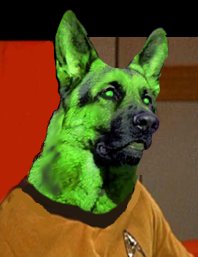Before undertaking the project of running a Star Trek RPG campaign, there are a few things to consider first. Some of what I am about to say may seem obvious but it is always good to keep the important things fresh in your mind. In issue #150 of Dragon Magazine (October, 1989) there is an article by John J. Terra about running a Star Trek campaign using the FASA rules system. I read that article every time I am about to run a Star Trek campaign, which means I've probably read it about 50 times already, minimum. Not only does the article contain some excellent information and creative ideas but it reminds me to focus on what is important when playing this particular RPG.
OK, so the first thing to do when preparing to run a Star Trek game is get to know Star Trek. Now, this may be one of those 'duh' moments but hear me out. Don't just watch the show you like, your favorite film or re-read that one awesome Star Trek novel with that alien you really want to use in the game. Watch lots of different episodes from all the different series (yes, even Voyager*). Read a couple of novels set in different eras. Get the Star Trek Encyclopedia and start reading it like a book and not like you're looking up something specific.
One of the biggest complaints I hear is, "I like The Original Series but my players all grew up on The Next Generation" or "I want to run a classic Star Trek game so I'm focusing on Star Trek II: The Wrath of Kahn".
Star Trek is not one thing. It is not The Original Series or the Dominion War or the Vanguard novels or the films. It's a pop culture phenomenon over 40+ years old and still growing. It's produced 5 live-action TV series, 1 animated TV series, soon to be 11 movies, countless novels, comic books, video and computer games, action figures, a seemingly infinite number of fansites and now cologne. Cologne! To effectively run a Star Trek campaign you need to understand this, appreciate it and have a general knowledge of all facets of this modern mythological masterpiece.
Now I'm not asking you to know anything and everything in the Star Trek universe with pin-point accuracy. What I'm saying is that if you become an expert on one element, you're not going to be able to adapt when your players have no interest in that element. When two or three of the players really want to play species from Enterprise are you going to say, "Sorry, where playing in The Next Generation". The players will quickly point out that Enterprise is chronologically before TNG in the time line and just because Denobulans didn't appear on the TNG TV series doesn't mean they are not in Starfleet so many years later.
Another reason for this approach is that Star Trek is not all things to all people. I'll never forget suggesting to one group that we ran Star Trek and that I'd like to go for that classic feel. At that point one potential players said, "Awesome! I love the Next Generation!" Instead of beaming this individual into a bulkhead, I decided to say, "Great! Is that where you'd all like to set the game?" The vote eventually went to playing around the time of Star Trek: First Contact, with the Dominion War not far away. I ran the game with a distinctly TOS feel however, mixed with some TNG and DS9 moments. The players loved it because it was a good game and no matter how you sliced it, it was definitely Star Trek.
Star Trek campaigns should showcase elements of the best Star Trek has to offer, regardless of incarnation. Star Trek adventures and campaigns should be about action, intrigue, honor, romance, heroism, scientific speculation and an exploration of what makes us Human. This is true of any Star Trek game and any Star Trek series or product.
*You may, on occasion, notice I have a general dislike for Voyager. However, it is still Star Trek. You don't have to love, you can even think it stinks but you have to except it as part of the family.
AD
Barking Alien








